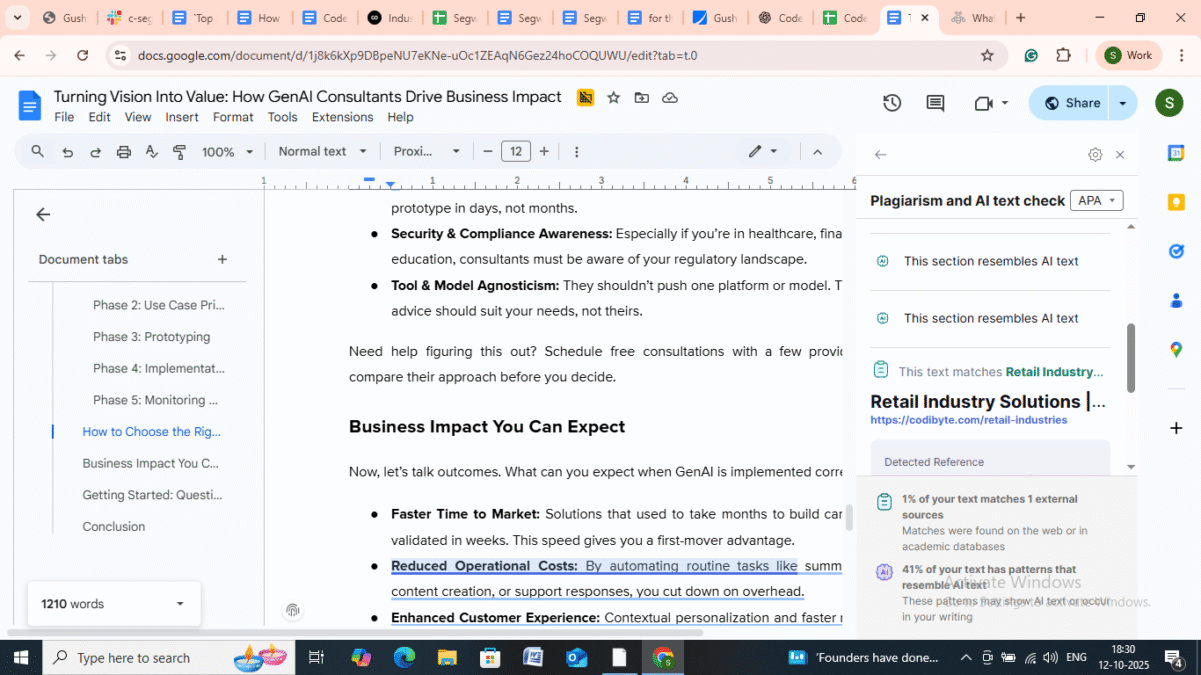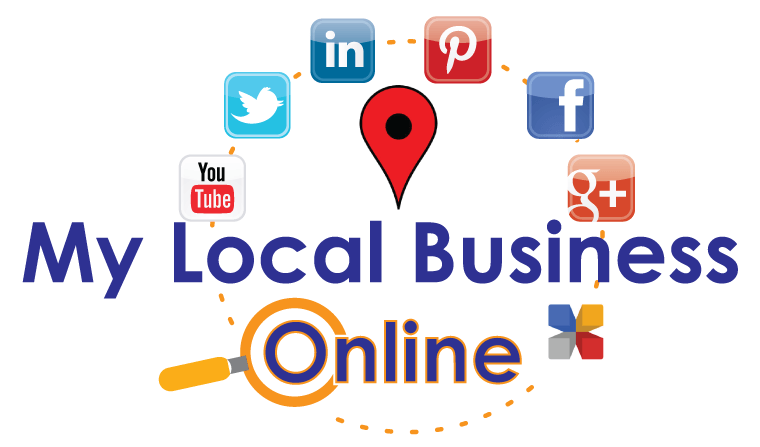Your company may be sitting on a brilliant idea, one that could unlock growth, enhance customer experiences, or eliminate inefficiencies. But moving from that initial spark to real business value often feels like navigating a maze. This is especially true when it comes to implementing generative AI. With the technology evolving rapidly, it’s easy to get lost in experimentation without clear results.
That’s where AI transformation strategy experts come in. GenAI consultants help businesses make confident moves, transforming ideas into real-world applications that solve problems and generate measurable outcomes. This blog explores how these consultants act as catalysts, guiding companies from vision to business impact.
Why Companies Struggle to Unlock AI’s Value
Many businesses today struggle to generate tangible ROI from generative AI projects. You may have already experimented with off-the-shelf tools or hired teams to build custom solutions. But have you faced these roadblocks?
- You’re unsure where GenAI fits into your existing workflows.
- The solutions built lack business alignment or adoption.
- AI output is impressive, but disconnected from your KPIs.
- You lack a framework to prioritize and validate use cases.
- Data readiness or security concerns stall implementation.
The root cause in many cases? No clear strategy. Without a structured approach, AI initiatives often stay stuck in prototype mode.
What Exactly Do GenAI Consultants Do?
At their core, GenAI consultants translate business goals into technically feasible, strategically sound AI initiatives. They bridge the gap between what’s possible and what’s practical, turning confusion into clarity.
Their typical responsibilities include:
- Business Discovery & Use Case Mapping: Identifying which areas of your operation can benefit most from generative AI, be it marketing content, product personalization, sales enablement, or operational efficiency.
- Strategy & Roadmapping: Creating phased implementation plans with clear milestones, budget guidance, and risk assessments.
- Prototyping & Validation: Building rapid GenAI prototypes (often in a week or less) to test concepts before committing full development resources.
- Model Selection & Tuning: Recommending the right model architecture (e.g., GPT, Claude, LLaMA) and fine-tuning it to fit your specific context.
- Data Infrastructure Review: Ensuring your internal systems and data pipelines are AI-ready, secure, and compliant.
- Team Enablement: Training your internal teams to work with, manage, and iterate on GenAI models effectively.
In short, they make sure your AI investments are aligned with your business outcomes, not just cool experiments.
The Hidden Costs of Skipping Strategy
You might think, “one can build this ourselves,” or “Let’s see what the tech team can cook up with ChatGPT.” That mindset can work for side projects. But for business-critical applications, here’s what can go wrong without expert consulting:
- Wasted Time & Budget: Building unscalable models or tools that get discarded after the MVP phase.
- Compliance Issues: Missing out on key data governance or legal considerations, especially in regulated industries.
- User Mismatch: Designing AI output that looks good on paper but doesn’t integrate into how your users or employees actually work.
- Technical Debt: Choosing the wrong models, stacks, or hosting approach leads to expensive rework later.
A GenAI consultant helps you avoid these pitfalls by putting strategy before code.
Common Use Cases Where Consultants Deliver High Value
Wondering where GenAI can actually make a business impact? Consultants often help you identify and activate use cases like these:
- Personalized Marketing at Scale: Create context-aware content variations for emails, landing pages, and ads based on user segments, behavior, and intent.
- Knowledge Management & Agentic AI: Transform internal documentation into smart, searchable assistants that help employees find answers quickly.
- Automated Customer Support: Build AI chatbots that understand nuanced queries, personalize responses, and route tickets efficiently.
- Sales Enablement: Generate on-demand scripts, decks, or pitches tailored to prospect personas and deal stages.
- Product Feature Ideation: Use GenAI to synthesize feedback, competitor data, and market trends into new feature concepts.
- Document Summarization & Compliance: Scan lengthy documents or contracts for risk elements or summaries, saving legal teams hours of manual review.
Across industries, be it healthcare, fintech, education, or logistics, these consultants help you apply GenAI where it counts.
How the Process Typically Works
You might ask: “What does working with a GenAI consultant actually look like?” While every engagement is different, here’s a typical phased approach:
Phase 1: Discovery & Ideation
You’ll work together to identify your key business challenges. The consultant will facilitate workshops, interview stakeholders, and assess existing data, workflows, and tech infrastructure.
Phase 2: Use Case Prioritization
Not all GenAI ideas are worth pursuing. This phase evaluates feasibility, ROI potential, and alignment with your strategic goals.
Phase 3: Prototyping
You’ll see fast results here. In just 5–10 days, a proof-of-concept is built to demonstrate the idea in action—helping you secure stakeholder buy-in or funding.
Phase 4: Implementation
If the pilot is successful, the solution is refined and integrated into production systems with proper APIs, UX, and data handling mechanisms.
Phase 5: Monitoring & Optimization
Post-launch, consultants help you track outcomes and continuously improve model performance based on user feedback and new data.
How to Choose the Right GenAI Consultant
With the flood of providers out there, how do you know who’s credible? Here are some signs to look for:
- Business and Tech Experience: They should understand not only AI but also your industry and business model.
- Track Record: Look for proof case studies, prototypes, or past deployments in similar contexts.
- Rapid Prototyping Ability: You need someone who can move from whiteboard to prototype in days, not months.
- Security & Compliance Awareness: Especially if you’re in healthcare, finance, or education, consultants must be aware of your regulatory landscape.
- Tool & Model Agnosticism: They shouldn’t push one platform or model. The advice should suit your needs, not theirs.
Need help figuring this out? Schedule free consultations with a few providers and compare their approach before you decide.
Business Impact You Can Expect
Now, let’s talk outcomes. What can you expect when GenAI is implemented correctly?
- Faster Time to Market: Solutions that used to take months to build can now be validated in weeks. This speed gives you a first-mover advantage.
- Reduced Operational Costs: By automating routine tasks like summarization, content creation, or support responses, you cut down on overhead.
- Enhanced Customer Experience: Contextual personalization and faster response times improve user satisfaction and brand loyalty.
- Strategic Decision-Making: With GenAI organizing and surfacing insights from your data, you enable smarter, faster decisions at every level.
This kind of value doesn’t happen by accident. It comes from purposeful, guided execution.
Getting Started: Questions You Should Ask Internally
Before jumping into a GenAI initiative, pause and reflect. These questions can help you prepare:
- What business outcome do we want to drive with AI?
- Where are our current inefficiencies or bottlenecks?
- Do you have clean, structured data for the problem we want to solve?
- Who will use or maintain the AI solution?
- What does success look like, and how will we measure it?
The more clarity you have, the better your consultant can serve you.
Conclusion
Generative AI holds immense potential, but real impact comes only with the right strategy and execution. GenAI consultants help bridge the gap between ideas and business outcomes by aligning technology with core objectives. With their guidance, you can move faster, reduce risk, and build solutions that truly matter. If you’re ready to unlock practical value from AI, the right partner can make all the difference.






